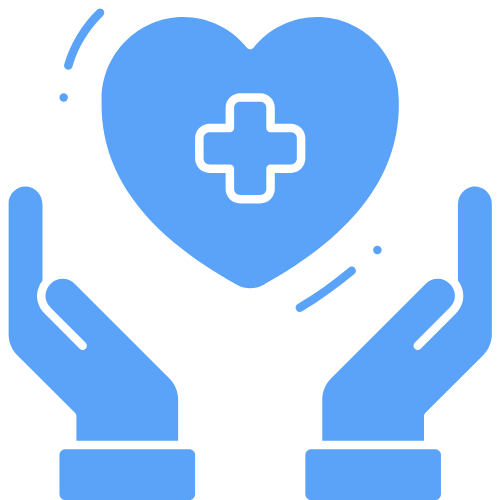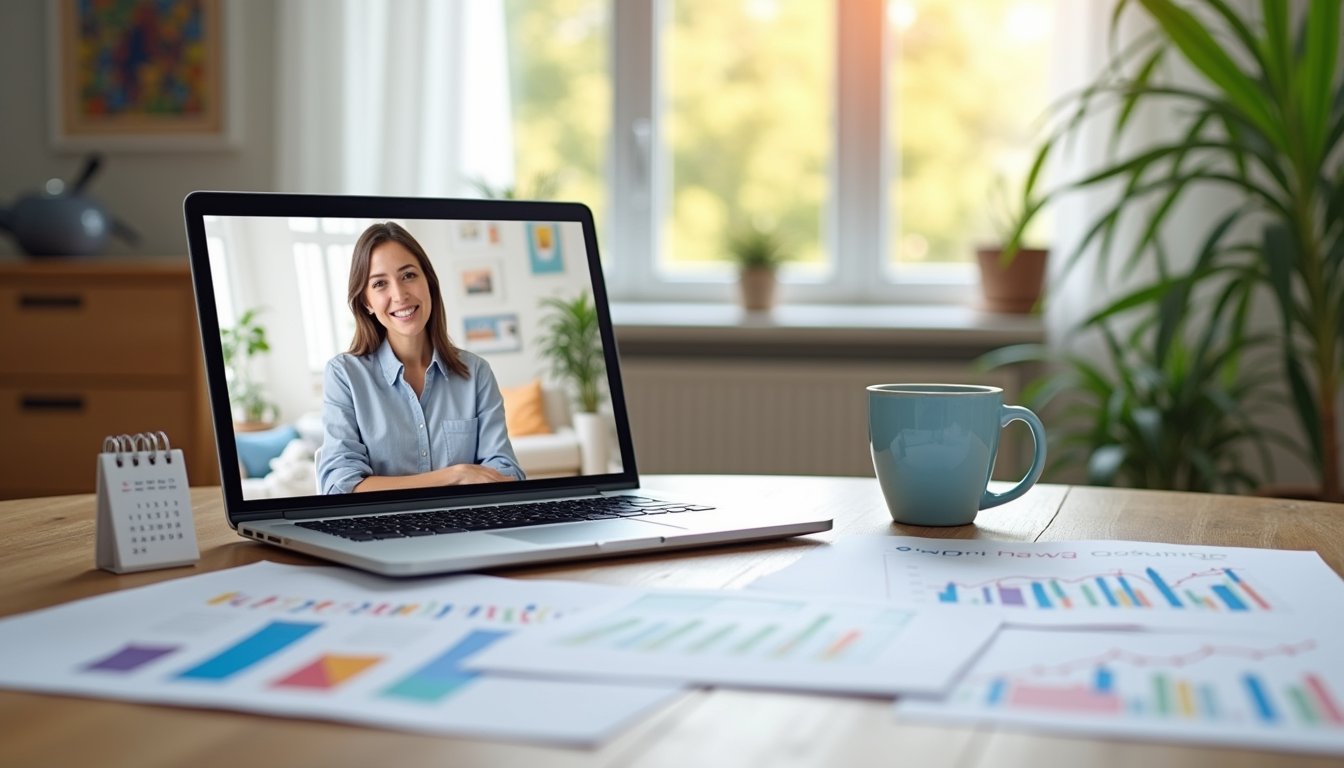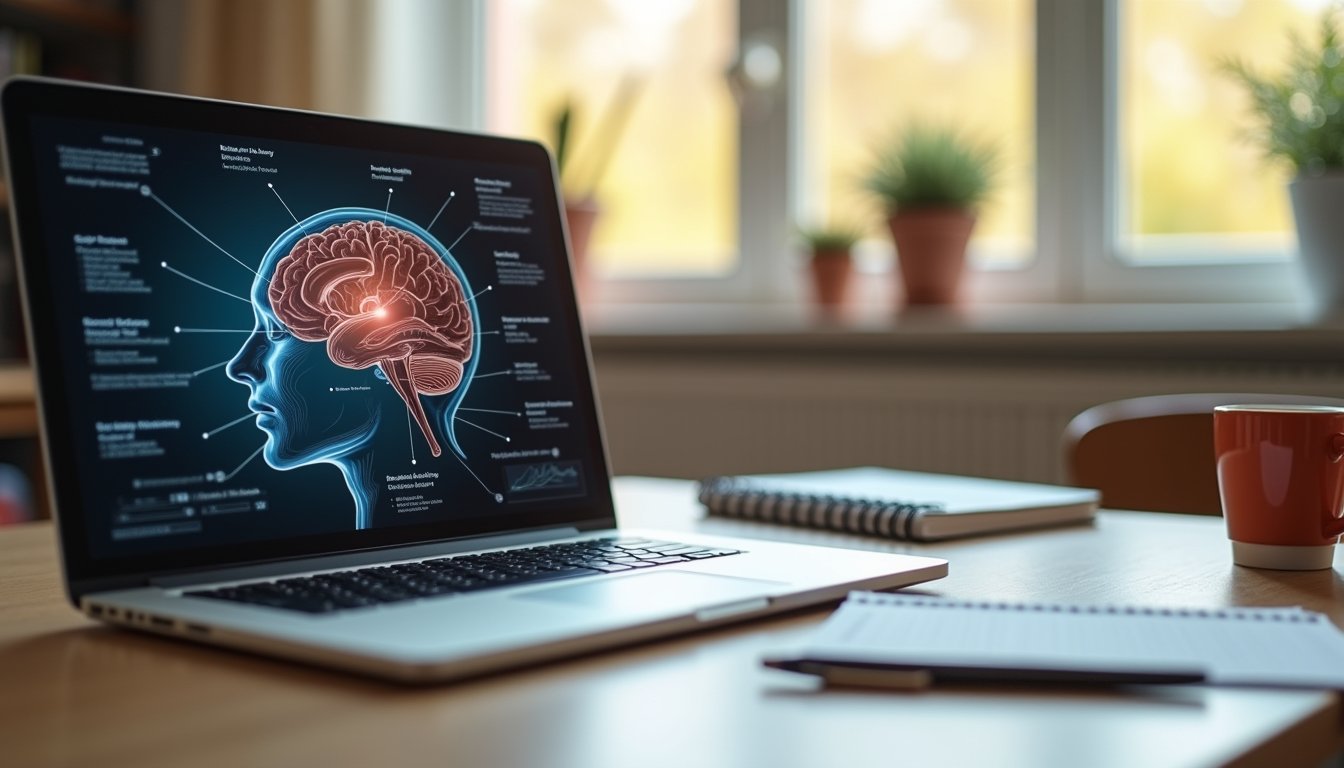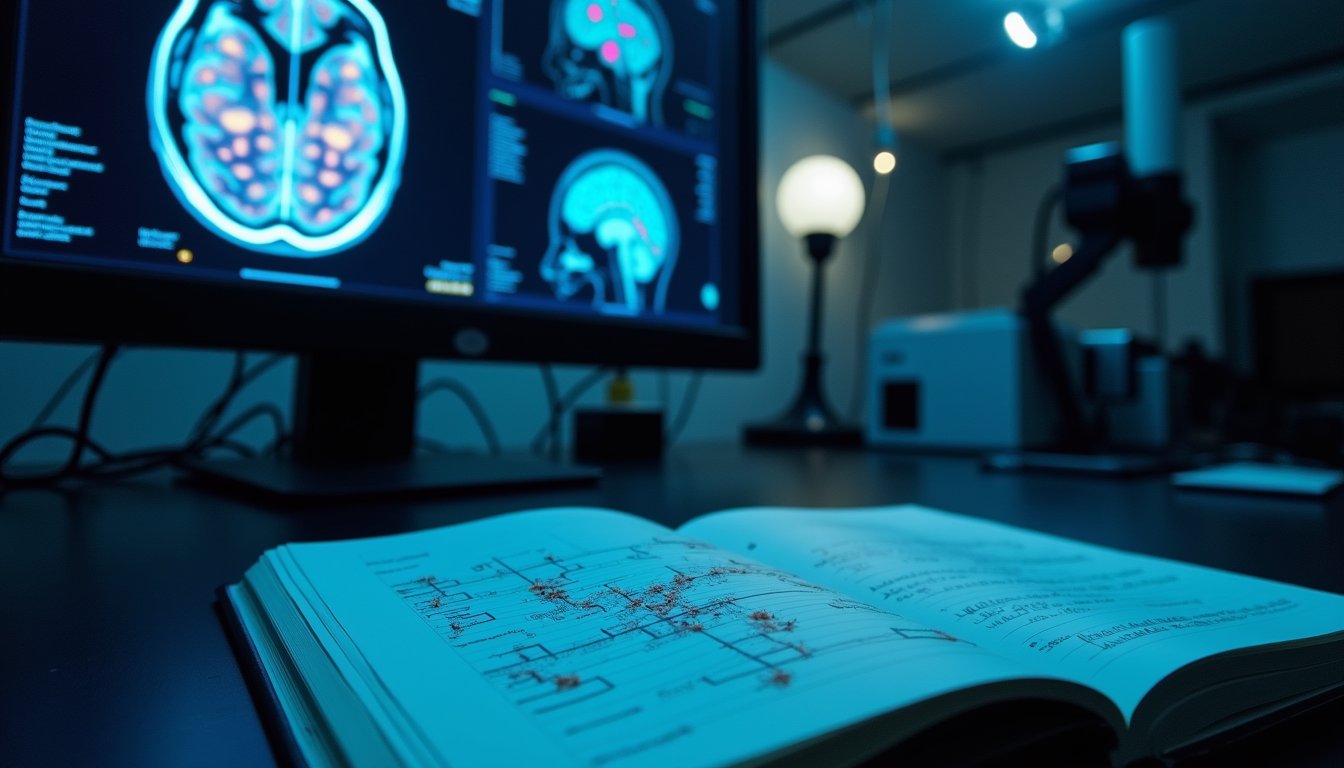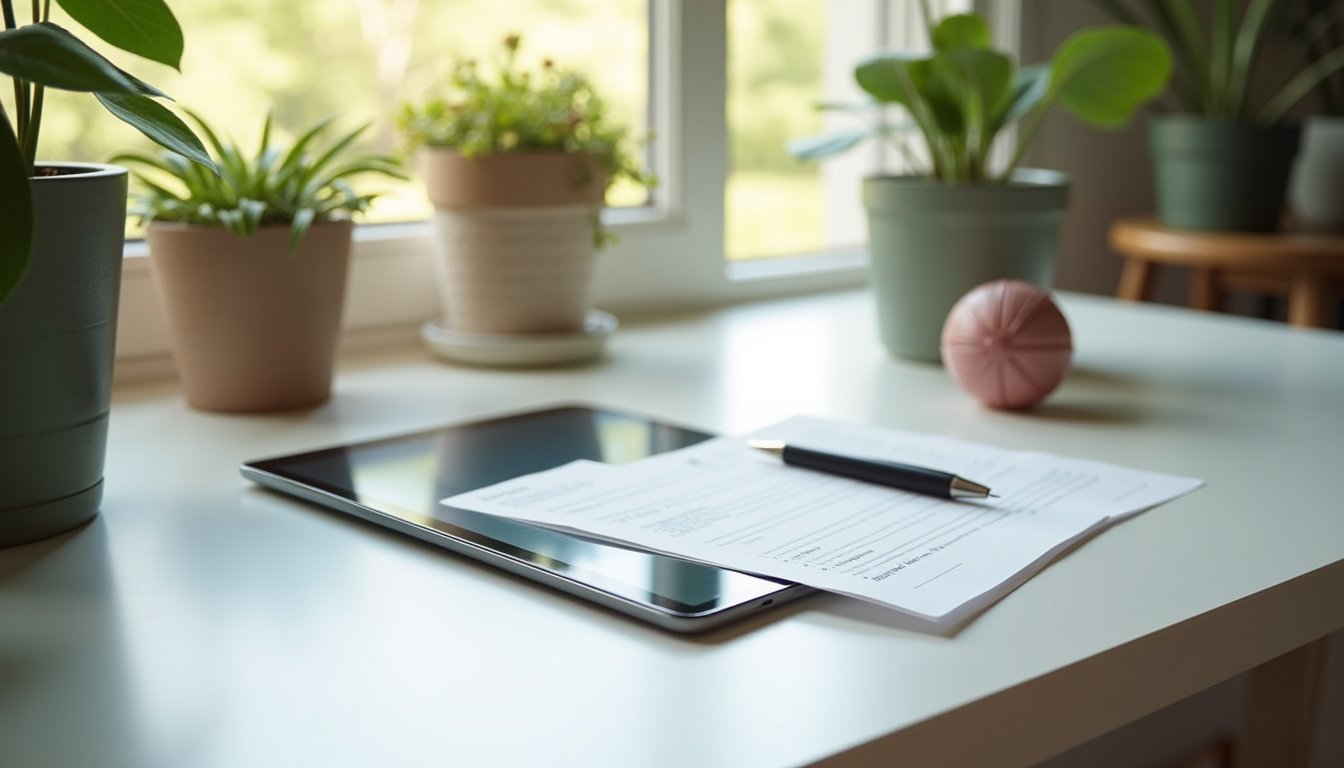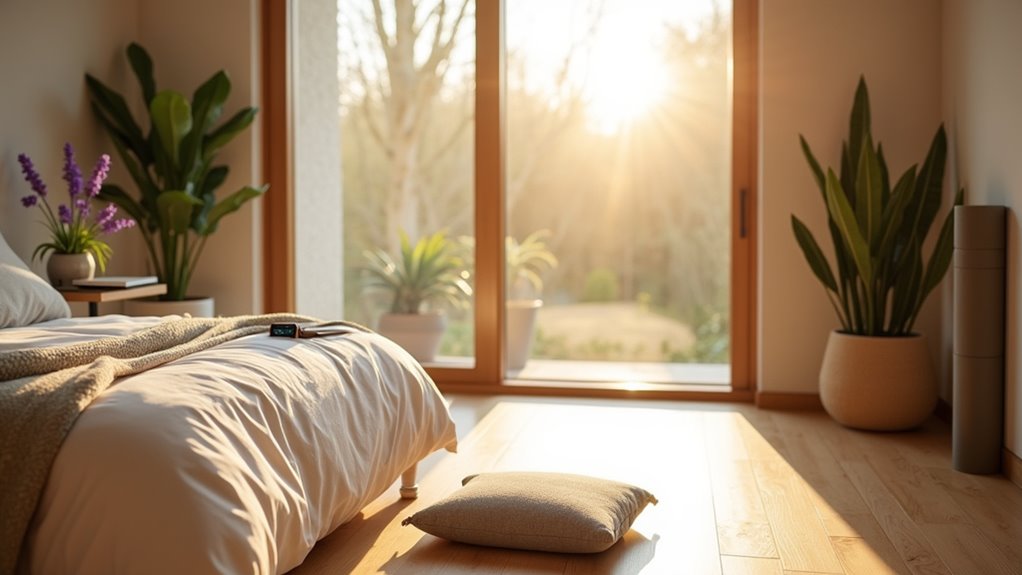Start your mental wellness journey by implementing evidence-backed technological boundaries, like designated screen-free zones and consistent “off” times after 7 PM. You’ll optimize your mental health by maintaining 7-9 hours of quality sleep, practicing mindfulness techniques, and engaging in community-based wellness activities. Combine these strategies with attention training exercises to combat the average 47-second attention span in today’s virtual realm. These foundational practices set the stage for transformative mental wellness outcomes.
Mindful Tech Boundaries for Digital Balance

While digital technology improves our lives in countless ways, establishing mindful tech boundaries has become essential for maintaining psychological well-being. Research shows that 78% of consumers implement digital boundaries, recognizing the need for authentic connection cultivation beyond screens. Consider using built-in screen time tools to monitor your daily digital consumption patterns. Being fully present during daily activities helps reduce technology’s negative impact on mental health.
You’ll benefit from designating device-free zones and consistent “off” times, particularly after 7 PM or during weekends. Start by identifying high-risk scenarios where technology disrupts your focus or relationships, such as work hours or meal times. Practicing mindful social media consumption through setting daily usage limits helps reduce anxiety and comparison. To maintain tech habit accountability, consider joining the 46% of users who prioritize screen breaks during high-stress periods. Create dedicated spaces for personal interactions, following the 44% who’ve established device-free areas. These boundaries help foster genuine connections while preventing digital overwhelm in your daily routine.
Smart Sleep Optimization Strategies
A well-optimized sleep routine serves as a cornerstone for maintaining sturdy mental health. Research shows you’ll experience 2.5 times more mental distress when sleeping six hours or less, compared to the recommended 7-9 hours. To protect your psychological wellbeing, implement optimized lighting schedules that align with your natural circadian rhythm. Poor diet choices can undermine sleep quality, so focus on consuming sleep-promoting foods. Education level shows a strong connection, as individuals with lower education tend to experience more frequent mental distress.
Your stage of life profoundly impacts sleep needs. If you’re under 44, you’re more likely to connect sleep issues with mental health challenges. Combat this by developing customized napping strategies that complement your primary sleep schedule without disrupting nighttime rest. Focus on sleep quality, as 46% of poor sleepers report diminished mental health. Racing thoughts and anxiety often make falling asleep particularly challenging. Maintain consistent bedtimes to regulate mood stability and bolster emotional resilience, especially if you’re managing anxiety or depression.
Evidence-Based Wellness Practices

Evidence-based wellness practices form the cornerstone of effective mental health management, with research supporting specific interventions for different psychological needs. You’ll find that community-based wellness approaches, combined with culturally responsive practices, greatly enhance treatment outcomes. These evidence-supported strategies integrate seamlessly into daily routines while addressing unique cultural contexts and individual requirements. Military research shows that peer support programs significantly improve mental resilience and recovery outcomes in high-stress environments. Setting specific treatment goals helps track progress and maintain focus on desired outcomes.
- Engage in structured Cognitive Behavioral Therapy techniques to reshape negative thought patterns and develop healthier coping mechanisms
- Utilize mindfulness-based interventions that have proven effectiveness in reducing stress and anxiety
- Participate in community-initiated prevention programs designed to address specific cultural and contextual factors
- Implement self-monitoring tools to track emotional states and identify triggers, allowing for proactive mental health management
Attention Training in the Digital Age
Modern digital environments present unprecedented challenges to human attention spans, with research showing dramatic decreases across generations. Today’s adults average 7.5 hours of daily screen time, while children under two already consume 3 hours between TV and mobile devices. These patterns correlate with concerning mental health impacts and disrupted sleep cycles. Social media notifications constantly interrupt focus and productivity throughout the day. Recent studies indicate that attention spans average just 47 seconds in today’s digital world. ADHD diagnoses have increased significantly, with 11% of teenagers now being diagnosed with the condition.
You can combat digital overload through attention restoration programming and cognitive training applications. Evidence shows targeted interventions like the Finding Focus program achieve 94.7% success rates in improving sustained attention. Key strategies include practicing single-tasking, implementing structured screen breaks, and engaging in focused attention exercises. By recognizing your digital consumption patterns and actively training your attention skills, you’ll develop stronger cognitive resilience in our increasingly connected world.
Building Online Resilience and Safety

Digital platforms have fundamentally transformed how we navigate mental health challenges, with research showing that nearly 60% of teens now report psychological difficulties in online spaces. Building online resilience tactics and understanding internet safety dynamics are essential for maintaining mental wellness in digital environments. Screen-free hours help foster meaningful in-person connections that support emotional well-being. By implementing strategic boundaries and developing digital literacy skills, you’ll be better equipped to handle online stressors while accessing valuable support resources. With 75% of adolescents experiencing moderate to severe depression or anxiety, creating healthy digital boundaries is more crucial than ever. Encouragingly, research shows that seeking help remains challenging for many youth due to fears about privacy and being understood.
Digital wellness requires strategic boundaries and mindful engagement to protect our mental health while navigating today’s complex online landscape.
- Set specific time limits for social media use to prevent digital overwhelm and protect your mental space
- Curate your online connections mindfully, following accounts that promote positive mental health practices
- Utilize privacy settings and content filters to create safer digital environments
- Join moderated online support communities that align with your mental health goals
AI-Powered Mental Health Tools
As technology evolves, AI-powered mental health tools have emerged as promising complements to traditional therapeutic approaches. Clinical validation studies show these tools can reduce depression symptoms by 64% and achieve 92% accuracy in predicting suicide risks. You’ll find diverse AI applications integrating evidence-based techniques like CBT and mindfulness exercises. Studies demonstrate these tools are especially effective at reaching underserved populations, improving access to mental health support.
| Tool Type | Benefits | Considerations |
|---|---|---|
| AI Chatbots | 24/7 Support, Privacy | Limited Complex Care |
| Mobile Apps | Continuous Access, Tracking | Data Security Risks |
| Multimodal Platforms | Amplified Engagement, Personalization | Requires Digital Literacy |
| Predictive Tools | Early Intervention, Risk Assessment | Need Clinical Oversight |
While adoption rates among mental health professionals have grown from 10% to 40% since 2015, ethical AI frameworks remain essential for ensuring responsible implementation. Consider these tools as complementary resources rather than replacements for professional care.
Morning Rituals for Peak Performance
While personal productivity patterns vary greatly, scientific evidence points to the morning hours as a critical window for peak mental performance. Your morning routine optimization can substantially impact cognitive function, with rising body temperature and enriched working memory creating ideal conditions for complex tasks.
To leverage these productivity hacks effectively, consider implementing these evidence-based strategies:
- Tackle challenging tasks during your morning cognitive peak
- Integrate physical movement to stimulate mental clarity
- Start with simple, sustainable practices rather than complex rituals
- Align activities with your personal circadian rhythm
Remember that effective morning routines don’t require elaborate protocols. Focus on core activities that boost your mental acuity and support decision-making capabilities. By prioritizing difficult work during these ideal hours, you’ll maximize your natural biological advantages while maintaining a sustainable approach to daily performance.
Stress Management Through Technology
While technology can contribute to stress, you’ll find strategic digital tools can actually improve your mental well-being when used mindfully. You can start by selecting evidence-based meditation apps that align with your stress management goals, while simultaneously establishing clear boundaries for device usage through scheduled digital detox periods. Research shows that combining purposeful tech engagement with regular offline breaks creates an ideal balance for managing daily stressors and maintaining psychological resilience.
Digital Detox Done Right
A staggering 91% of individuals experience improved mental health and attention span after implementing a digital detox regimen. Creating sustainable digital habits isn’t about completely eliminating technology, but establishing a healthy technology life balance that works for you.
Research shows significant reductions in depression and anxiety symptoms through structured digital detoxing, comparable to traditional therapeutic interventions. You’ll notice augmented focus, better sleep quality, and reduced stress levels when you implement these evidence-based strategies:
- Set specific times for email and social media checks to prevent constant notification disruptions
- Create tech-free zones in your bedroom and dining areas
- Use built-in screen time monitoring tools to track and adjust usage patterns
- Start with weekend detoxes before extending to longer periods
These systematic approaches help you maintain digital wellness while maximizing technology’s benefits.
Apps for Mindful Living
Despite concerns about excessive screen time, mindfulness meditation apps have emerged as powerful tools for managing stress and improving mental well-being. These platforms offer guided meditation journeys and emotional self-tracking capabilities that deliver measurable results reducing anxiety by 30% and enhancing overall health for 79% of users.
| App | Key Feature | Impact |
|---|---|---|
| Headspace | AI Companion | 14% stress reduction in 10 days |
| Calm | Sleep Stories | Augmented sleep quality |
| Healify | Wearable Integration | Thorough stress tracking |
You’ll find these apps particularly effective for developing consistent mindfulness practices, with premium features typically costing around $12.99 monthly. Research shows that regular use can elevate workplace productivity by 120% and academic performance by up to 15.4%. The integration of scientific-backed tools and personalized recommendations makes these platforms increasingly valuable for daily stress management.
Digital Community Support Networks
Safe online spaces provide vital venues for connecting with peers who understand your mental health expedition, with research showing that 36% of teens already maintain constant digital contact with supportive communities. You’ll find that moderated virtual support groups reduce treatment hesitancy while offering anonymous engagement options that help overcome stigma-related barriers to care. Digital peer networks can serve as effective gateways to professional services, particularly through established platforms that combine community support with pathways to appropriate clinical resources.
Online Safe Spaces Matter
While traditional mental health services remain essential, digital communities have emerged as pivotal frontline resources for emotional support and early intervention. Through anonymous engagement in moderated forums and specialized platforms, you’ll find judgment-free environments that facilitate stigma reduction and encourage open dialogue about mental health challenges.
- Access peer support networks that provide real-time emotional assistance and shared experiences
- Engage with moderated forums designed to protect user privacy while fostering meaningful connections
- Utilize anonymous self-assessment tools to track your mental wellness trek
- Connect with verified resources that bridge online support to professional care when needed
Research shows that these digital safe spaces serve as central initial contact points, particularly for young people who might hesitate to seek face-to-face help. With 36% of youth maintaining constant online contact, these platforms offer critical pathways to early intervention and ongoing support.
Virtual Support Group Benefits
Virtual support groups expand the protective framework of online safe spaces into dynamic, therapeutic communities. Through extensive group moderation strategies and participant privacy safeguards, you’ll find empowering environments that validate your experiences while fostering emotional growth.
These digital networks strengthen your coping mechanisms by connecting you with peers who share similar challenges. You’ll develop practical skills through collective problem-solving, while gaining valuable insights from others’ treatment experiences. The flexible nature of virtual platforms means you can engage at times that suit your schedule, whether actively participating or simply observing.
Regular involvement in these communities improves your self-efficacy, reduces isolation, and supports your mental health path. The combination of emotional validation, skill development, and consistent peer support creates a thorough framework for sustained psychological wellness.
Self-Care Automation Techniques
Technology has revolutionized modern self-care through automated systems that enhance mental health management and treatment compliance. Research shows that AI-driven platforms achieve satisfaction rates of 8.06/10 while enabling personalized goal tracking and digital lifestyle audits. These tools demonstrate significant improvements in well-being, with effect sizes ranging from 0.24 to 0.26 across intervention groups.
- AI-powered conversational agents provide 24/7 accessibility and anonymous support through platforms like WhatsApp
- Smart home integration regulates sleep cycles and ambient conditions to reduce stress triggers
- Automated health monitoring systems streamline medication adherence and symptom tracking
- Digital assistants minimize decision fatigue by managing routine tasks and scheduling
Frequently Asked Questions
How Can Meditation Apps Affect Brain Chemistry and Neural Pathways?
When you use meditation apps consistently, they can trigger significant brain structure changes through neuroplasticity. You’ll experience increased neurotransmitter production, including dopamine and serotonin, while reducing stress hormones like cortisol. The apps’ guided practices strengthen neural connectivity impacts, enhancing your default mode and salience networks. You’ll develop denser gray matter in your hippocampus and prefrontal cortex, improving attention, emotional regulation, and cognitive flexibility.
What Role Do Genetic Factors Play in Digital Addiction Susceptibility?
Your genetic predispositions substantially influence your susceptibility to digital addiction, with heritability accounting for up to 40-60% of addiction risk. Key genes affecting dopamine regulation, like DRD4 and DAT1, can impact your reward processing and compulsive behaviors. You’re particularly vulnerable if you carry specific variants like the DAT1 9-repeat allele or DRD4 4R/4R genotype. However, these genetic factors interact with environmental triggers, meaning your lifestyle choices still play a pivotal role.
Can Blue-Light Blocking Technology Reverse Existing Sleep Pattern Damage?
Blue light blocking benefits can help reverse some sleep pattern damage, though results vary by individual. You’ll typically see circadian rhythm improvements within 2-3 weeks of consistent use, especially when using blue-blocking technology 2-3 hours before bedtime. While it can’t erase all previous disruption, research shows you’ll experience reduced sleep latency, improved melatonin production, and better sleep quality. The key is maintaining regular use alongside good sleep hygiene practices.
How Do Cultural Differences Impact the Effectiveness of Mental Wellness Apps?
Cultural differences substantially impact how you’ll respond to mental wellness apps. Socioeconomic status influences access and engagement patterns, while cultural stigma mitigation varies across different communities. You’ll find that apps customized to your cultural context incorporating local beliefs, language patterns, and cultural norms are more effective than generic versions. Research shows that culturally adapted digital interventions deliver better outcomes and higher user engagement than one-size-fits-all approaches.
What Percentage of Mental Health Improvements Come From Placebo Effects?
Based on placebo effect research, you’ll find that 35-40% of mental health improvements can be attributed to placebo responses, particularly in depression treatments. Medication efficacy studies show varying percentages across conditions: the highest impact is seen in major depressive disorder (with effect sizes of 1.40) and anxiety disorders (1.23), while conditions like schizophrenia show lower placebo contributions (0.59). You’ll notice these effects are consistent across different treatment modalities, including pharmacotherapy and psychotherapy.
